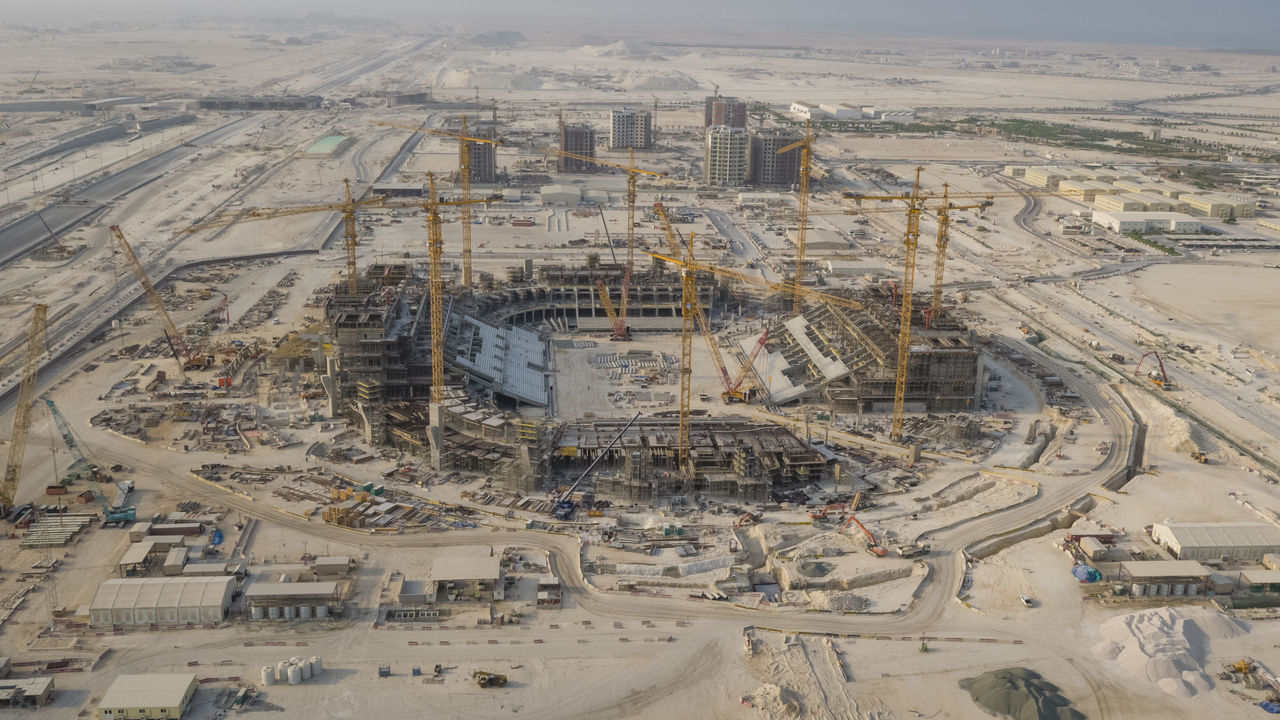Migrants still exploited and abused in Qatar prior to World Cup, Amnesty says
Qatari football is back in the news for all the wrong reasons.
In the wake of the national team's 3-1 Asian Cup final win over Japan on Friday, the country's widely reported human rights abuses have been thrust back under the spotlight by published research from Amnesty International.
Amnesty states authorities in Qatar are still "falling significantly short" in their efforts to protect the rights of migrant workers in the country, around 30,000 of whom are working on projects specifically for the 2022 World Cup, reports BBC Sport's Dan Roan. The human rights group warns Qatar is "running out of time" ahead of the sporting showpiece.
The 19-page paper titled "Reality Check" asserts that "much more needs to be done" by the Gulf state as workers are still subjected to "exploitation and abuse." Overall, there are an estimated 2 million migrant workers in Qatar.
"Time is running out if the Qatari authorities want to deliver a legacy we can all cheer ... a labor system that ends the abuse and misery inflicted upon so many migrant workers," Amnesty director Stephen Cockburn said.
"The authorities have been taking some important steps to protect labor rights but much more needs to be done. Holes in the reforms mean many workers are still stuck in harsh conditions."

Amnesty's report acknowledged improvements overseen by the Qatari authorities after poor conditions led to worker deaths, including new laws for a temporary minimum wage and an insurance fund. However, it added that workers remain vulnerable to serious abuses "sometimes amounting to forced labor and human trafficking."
Roan writes "an audit of 19 contractors working on World Cup sites also found that abuses such as excessive working hours remained at a majority of the companies."
Qatar controversially beat rival bids from the United States, Australia, South Korea, and Japan to hosting rights for the World Cup in 2022. Further complaints over that decision include the huge revision to the club calendar - it will be held in winter to avoid the summer heat - and the building of seven new stadia that may not see adequate use after the competition.
HEADLINES
- Goalkeeper Sean Johnson signs 1 1/2-year contract with D.C. United
- Luis Suarez commits to Inter Miami for another season
- Small number of World Cup tickets set at $60 after global fan backlash
- The Best FIFA Awards: Dembele, Bonmati collect top prizes
- Ex-USMNT star Bradley named head coach of New York Red Bulls